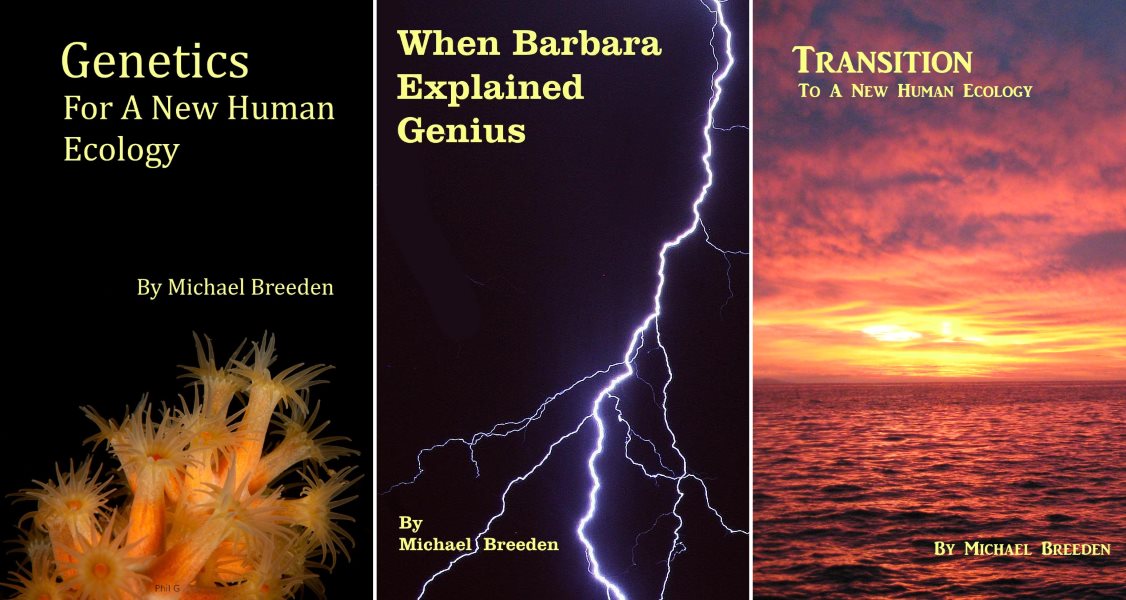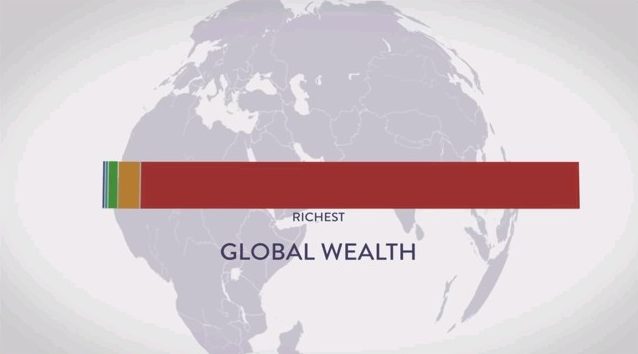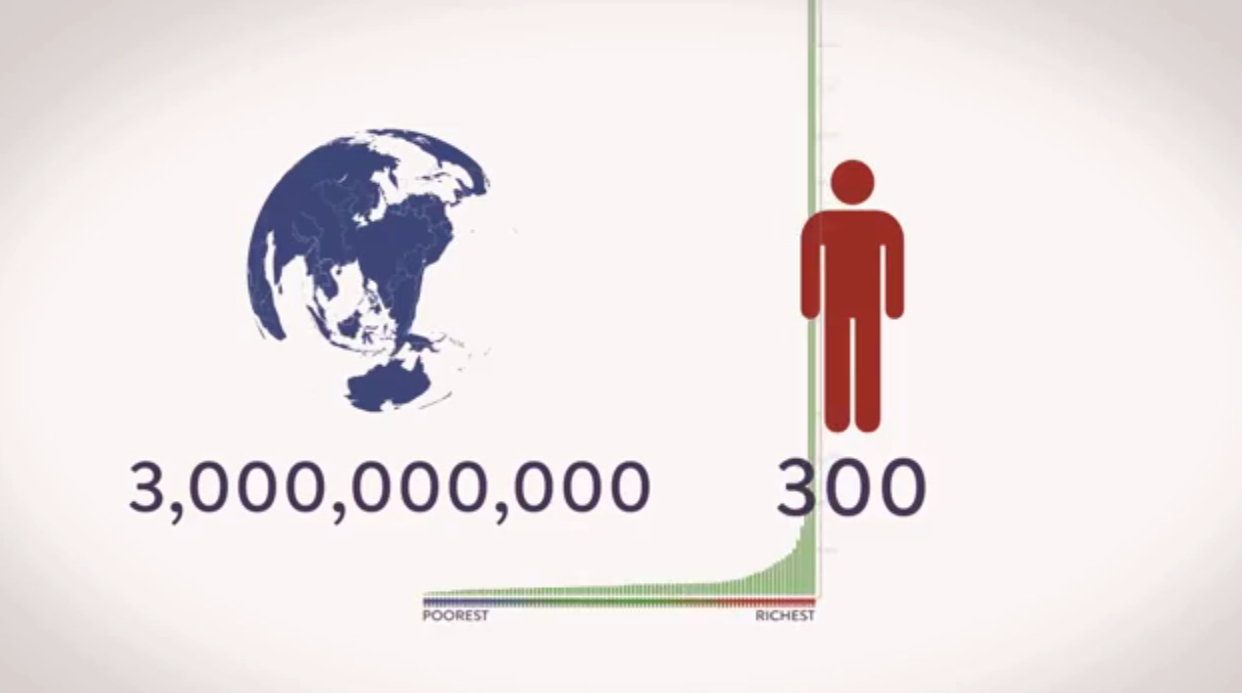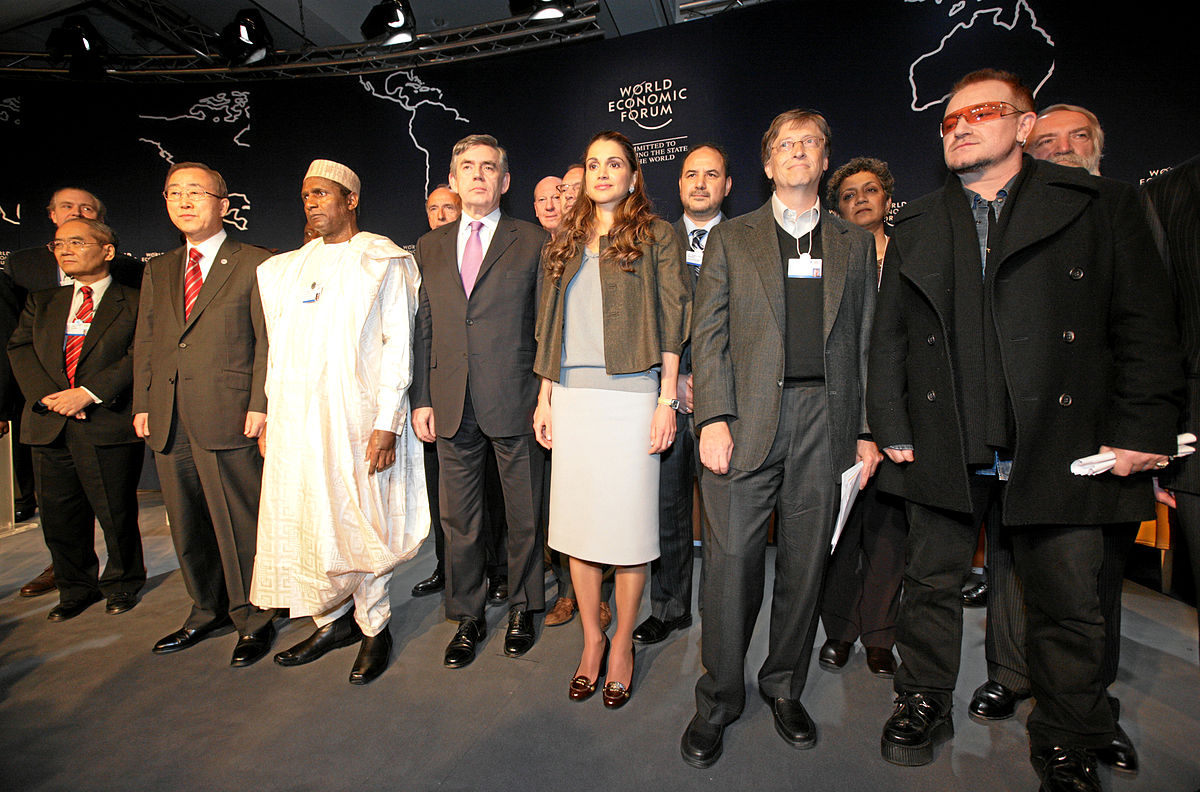
The world is changing rapidly and deeply. If you consider yourself a citizen of a nation, a society or humanity, you must be concerned for its future, because of all the uncertainty the changes are causing. If you are paying attention it probably scares you, especially if you have children and worry about their future. Our philosophy and strategies are adapted to an older world that is mostly gone. We need new philosophies and strategies to survive. The difficulty is that it is a broad problem, so everyone gets a different point of view. A pastor sees it as moral deterioration, a worker sees it as jobs being replaced by machines, a parent wonders how they can teach the lessons their children will need to survive. A politician wonders how to make their complex society function. A citizen wonders how to protect their freedom from global economic powers and human predators. The changes mean that we need new strategies and systems of survival. As with any problem we face, the first challenge is to understand it. We need more than observations of the changes and problems. We need a systematic way to organize that information to reveal how the changes are leading to the problems and what is the interconnectedness of the problems. Science offers a fantastic tool for organizing the information describing a specie, its environment and its requirements for survival. That tool is called ecology. Using that tool immediately shows the magnitude of the changes that humans are experiencing. In terms of ecology, these changes are greater than any other species has ever tried to survive… and succeeded. The more I looked and the more I understood about humans, the more I was amazed at the magnitude of the changes we were experiencing in just about every aspect of human life, habit and existence.
Using ecology as a method of examination reveals something else. It seems that the root cause of these many changes and problems actually relates back to humans having left the ecology we grew up in and are still most adapted to. That is the so-called hunter gatherer tribal ecology, which we have replaced with the farms and cities of civilization. Since then we have been traveling through a series of transient ecology. That is dangerous, because of species does not exist in a relatively long term stable ecology is known as … extinct. We started farming and creating cities, but where we are going was not so clear. There was a lot of data available to examine for trends, including many thousands of years of history and lots of information to work with from biologists, anthropologists, historians, literature; even religion and lore. More and more, genetic information has become available as well. I spent many years assembling and organizing the data, trying to find suitable solutions to the dangers. They all effected each other and all had to be integrated. I saw how to take advantage of the possibilities for both human survival and growth. I wanted to make some kind of theoretical concept of how humans could again create a relatively stable ecology where those dangers were past and humanity could make their own destiny instead of so often just reacting to events as animals must.
So we need to create and adapt to this new ecology. It’s going to be a little different, because it will be an ecology not created by nature so much as it will be created by human strategic and genetic adaptation. For now that does include nature, but human ecology is also about buildings, factories, machines, power distribution, communication, customs, social institutions, laws, etc. and it will become more so as time goes on, but it is still ecology. It is still our life support system.
While human’s primary method of adaptation is behavioral, we will also need to adapt genetically. The ecological analysis shows a dangerous problem. Changes we have already made, especially medicine, greater age of reproduction and reduced family size has created an imbalance between the natural mutation rate and the natural selection rate that will cause a disastrous genetic load. That problem is already upon us and why I recently published a book on Amazon called <strong><a href=”https://www.amazon.com/dp/B01MYCC25Q”>Genetics For A New Human Ecology</a></strong>. It describes the problem as well as a practical and ethical solution. That solution will open up other great potentials to help humanity adapt to the future. There is another book – <strong><a href=”https://www.amazon.com/dp/B0113L65G2″>When Barbara Explained Genius</a></strong> – that describes intelligence, the behavior that got us here and what will be the most important behavior in the future. (It needs a little update now due to new discoveries made during recent development of Artificial Intelligence.)
The real challenge though it describing how humans can adapt strategically. That is the primary way humans adapt and we need to make great adaptation. All our institutions, beliefs and habits need to be examined, understood and adapted. Our most important basic survival strategies come to us as moral systems from history and religion based on authority and precedence. Things have changed so much that they often do not apply anymore or may not offer solutions to important problems. Worse yet, our old moral strategies cannot be defended. We need new moral foundations for our strategies that are based on reason and understanding or they will not be used. I have worked on this problem for over four decades. I wrote much of the solution in a book called – <a href=”https://www.amazon.com/dp/B00K61A64S”><strong>Transition To A New Human Ecology</a></strong>. Unfortunately it turned out to be just too long and complicated. Well, humans are complex and it is a big problem. It was written in a poor form. It creates headaches. Though the information is there, that form does not communicate well. Still it was an accomplishment and it forced me to organize, complete and articulate the idea. The objective now is to convert that book into something readable that is fairly easy to understand. That is what my recent book <strong><a href=”https://www.amazon.com/dp/B01MYCC25Q”>Genetics For A New Human Ecology</a></strong> was about. It is short and understandable (hopefully). It is also what my current work is about – <strong>”Strategy For A New Human Ecology</strong>.
Now don’t be fooled. I phrase this all in terms of science, but it is ultimately about creating a world that we have expressed in thousands of years of moral aspirations so it is about things that are familiar. It reflects what we call human progress including the topics of equality, social justice, sustainability and human development. This is about ecology, but for humans that includes politics, law, economics, environment, machines, resources, philosophy and strategies that vdon’t often apply to the ecology of other species. I look at what a future we can create based on what we are and the aspirations of our past. There are things humanity has hoped for that we never really thought we could achieve, but I think we can. This is not a future based on the next technology or wishful thinking. This is about a future that humans have worked for over thousands of years and we are close to achieving. I just look for very basic mechanisms that control these things and they are best described by very basic theories about survival. Genetics may not seem so like such a social issue, but it is a source so many of the ills of humanity as well as of inequality. The solution to the genetic problem I mention would necessarily result in greater women’s rights… and responsibilities. It points out why racism endangers the survvial of everyone. Our genetics represent perhaps the greatest wealth of humanity, a wealth that can neither be extracted or hoarded, but it can be husbanded and grown. That is what my recent book is about.
Machines are developing at a scary rate. How are humans to deal with smart machines? I know some solutions and one part is in the Genetics topic.
Just consider automation. There are thousands of smart boys and girls trying to figure out how to replace everyone’s jobs with machines. How many are trying to solve the problems that will create? How many can understand the problem? Some mention the economic problem and a few are taking about “basic income” to solve that problem. A very few seem to mention how much identity comes from occupation. I haven’t seen much of a solution offered for that loss of identity, though I have heard a description of its result – “surly drunks”. Part of the solution to that problem can come from a very ancient philosophy. Nowhere have I seen anyone point out perhaps the most important problem that replacing human workers with machines will lead to. In biology and anthropology is the term “status” and it applies to species far older than humans. It is a critical part of our survival behavior. It is a deep part of out reproductive instinct. Women will readily marry across tribe, but not across class. Humans have derived status from occupation since before the tribal time of the “great hunter”. It took a while, but I am pretty sure I can solve that.
Another thing to keep in mind. You don’t just need to understand the problems… and their relatedness. You need to understand the relatedness of the solutions. Then you need solutions that are like the ones that biology makes that don’t just solve a problem, but that solve multiple problems. The world we live in in the future, the ecology we live in in the future will not be one created by nature. It must be created and maintained by humans. It will be created by genetic and strategic adaptation. We need to create it such that it not only works, but so that it also tends to be self repairing. There will be catastrophes such as volcanoes, meteors, disease … and many unknown and unexpected. We need to design a resilient system that does not go into shock like the society of Europe did during the plague. We need a system that doesn’t react like animals are limited to doing. We need a system built to recover.
This site is called “The Rules”. It is supposed to lay out the new rules we need to follow to make a new world where humans can find a future for our children that includes growth and social justice. We want a world that allows for our aspirations. We need to know more than how to survive. We need the strength that comes from knowing why we survive. That is what I have worked for – how we can create a new world where humans can survive long term and develop into more than we are. It must be a description of a world worth working and fighting for as our ancestors long have. Now though, we can remove much of the haze from what this world might look like. It includes the new culture this web site is about, but far more. I’ll tell you about it if you want. The changes are far more even than they seem. The dangers are near and great. The potentials can match our hopes and aspirations.
The world is changing rapidly and deeply. If you consider yourself a citizen of a nation, a society or humanity, you must be concerned for its future, because of all the uncertainty the changes are causing. If you are paying attention it probably scares you, especially if you have children and worry about their future. Our philosophy and strategies are adapted to an older world that is mostly gone. We need new philosophies and strategies to survive. The difficulty is that it is a broad problem, so everyone gets a different point of view. A pastor sees it as moral deterioration, a worker sees it as jobs being replaced by machines, a parent wonders how they can teach the lessons their children will need to survive. A politician wonders how to make their complex society function. A citizen wonders how to protect their freedom from global economic powers and human predators. The changes mean that we need new strategies and systems of survival. As with any problem we face, the first challenge is to understand it. We need more than observations of the changes and problems. We need a systematic way to organize that information to reveal how the changes are leading to the problems and what is the interconnectedness of the problems. Science offers a fantastic tool for organizing the information describing a specie, its environment and its requirements for survival. That tool is called ecology. Using that tool immediately shows the magnitude of the changes that humans are experiencing. In terms of ecology, these changes are greater than any other species has ever tried to survive… and succeeded. The more I looked and the more I understood about humans, the more I was amazed at the magnitude of the changes we were experiencing in just about every aspect of human life, habit and existence.
Using ecology as a method of examination reveals something else. It seems that the root cause of these many changes and problems actually relates back to humans having left the ecology we grew up in and are still most adapted to. That is the so-called hunter gatherer tribal ecology, which we have replaced with the farms and cities of civilization. Since then we have been traveling through a series of transient ecology. That is dangerous, because of species does not exist in a relatively long term stable ecology is known as … extinct. We started farming and creating cities, but where we are going was not so clear. There was a lot of data available to examine for trends, including many thousands of years of history and lots of information to work with from biologists, anthropologists, historians, literature; even religion and lore. More and more, genetic information has become available as well. I spent many years assembling and organizing the data, trying to find suitable solutions to the dangers. They all effected each other and all had to be integrated. I saw how to take advantage of the possibilities for both human survival and growth. I wanted to make some kind of theoretical concept of how humans could again create a relatively stable ecology where those dangers were past and humanity could make their own destiny instead of so often just reacting to events as animals must.
So we need to create and adapt to this new ecology. It’s going to be a little different, because it will be an ecology not created by nature so much as it will be created by human strategic and genetic adaptation. For now that does include nature, but human ecology is also about buildings, factories, machines, power distribution, communication, customs, social institutions, laws, etc. and it will become more so as time goes on, but it is still ecology. It is still our life support system.
While human’s primary method of adaptation is behavioral, we will also need to adapt genetically. The ecological analysis shows a dangerous problem. Changes we have already made, especially medicine, greater age of reproduction and reduced family size has created an imbalance between the natural mutation rate and the natural selection rate that will cause a disastrous genetic load. That problem is already upon us and why I recently published a book on Amazon called <strong><a href=”https://www.amazon.com/dp/B01MYCC25Q”>Genetics For A New Human Ecology</a></strong>. It describes the problem as well as a practical and ethical solution. That solution will open up other great potentials to help humanity adapt to the future. There is another book – <strong><a href=”https://www.amazon.com/dp/B0113L65G2″>When Barbara Explained Genius</a></strong> – that describes intelligence, the behavior that got us here and what will be the most important behavior in the future. (It needs a little update now due to new discoveries made during recent development of Artificial Intelligence.)
The real challenge though it describing how humans can adapt strategically. That is the primary way humans adapt and we need to make great adaptation. All our institutions, beliefs and habits need to be examined, understood and adapted. Our most important basic survival strategies come to us as moral systems from history and religion based on authority and precedence. Things have changed so much that they often do not apply anymore or may not offer solutions to important problems. Worse yet, our old moral strategies cannot be defended. We need new moral foundations for our strategies that are based on reason and understanding or they will not be used. I have worked on this problem for over four decades. I wrote much of the solution in a book called – <a href=”https://www.amazon.com/dp/B00K61A64S”><strong>Transition To A New Human Ecology</a></strong>. Unfortunately it turned out to be just too long and complicated. Well, humans are complex and it is a big problem. It was written in a poor form. It creates headaches. Though the information is there, that form does not communicate well. Still it was an accomplishment and it forced me to organize, complete and articulate the idea. The objective now is to convert that book into something readable that is fairly easy to understand. That is what my recent book <strong><a href=”https://www.amazon.com/dp/B01MYCC25Q”>Genetics For A New Human Ecology</a></strong> was about. It is short and understandable (hopefully). It is also what my current work is about – <strong>”Strategy For A New Human Ecology</strong>.
Now don’t be fooled. I phrase this all in terms of science, but it is ultimately about creating a world that we have expressed in thousands of years of moral aspirations so it is about things that are familiar. It reflects what we call human progress including the topics of equality, social justice, sustainability and human development. This is about ecology, but for humans that includes politics, law, economics, environment, machines, resources, philosophy and strategies that vdon’t often apply to the ecology of other species. I look at what a future we can create based on what we are and the aspirations of our past. There are things humanity has hoped for that we never really thought we could achieve, but I think we can. This is not a future based on the next technology or wishful thinking. This is about a future that humans have worked for over thousands of years and we are close to achieving. I just look for very basic mechanisms that control these things and they are best described by very basic theories about survival. Genetics may not seem so like such a social issue, but it is a source so many of the ills of humanity as well as of inequality. The solution to the genetic problem I mention would necessarily result in greater women’s rights… and responsibilities. It points out why racism endangers the survvial of everyone. Our genetics represent perhaps the greatest wealth of humanity, a wealth that can neither be extracted or hoarded, but it can be husbanded and grown. That is what my recent book is about.
Machines are developing at a scary rate. How are humans to deal with smart machines? I know some solutions and one part is in the Genetics topic.
Just consider automation. There are thousands of smart boys and girls trying to figure out how to replace everyone’s jobs with machines. How many are trying to solve the problems that will create? How many can understand the problem? Some mention the economic problem and a few are taking about “basic income” to solve that problem. A very few seem to mention how much identity comes from occupation. I haven’t seen much of a solution offered for that loss of identity, though I have heard a description of its result – “surly drunks”. Part of the solution to that problem can come from a very ancient philosophy. Nowhere have I seen anyone point out perhaps the most important problem that replacing human workers with machines will lead to. In biology and anthropology is the term “status” and it applies to species far older than humans. It is a critical part of our survival behavior. It is a deep part of out reproductive instinct. Women will readily marry across tribe, but not across class. Humans have derived status from occupation since before the tribal time of the “great hunter”. It took a while, but I am pretty sure I can solve that.
Another thing to keep in mind. You don’t just need to understand the problems… and their relatedness. You need to understand the relatedness of the solutions. Then you need solutions that are like the ones that biology makes that don’t just solve a problem, but that solve multiple problems. The world we live in in the future, the ecology we live in in the future will not be one created by nature. It must be created and maintained by humans. It will be created by genetic and strategic adaptation. We need to create it such that it not only works, but so that it also tends to be self repairing. There will be catastrophes such as volcanoes, meteors, disease … and many unknown and unexpected. We need to design a resilient system that does not go into shock like the society of Europe did during the plague. We need a system that doesn’t react like animals are limited to doing. We need a system built to recover.
This site is called “The Rules”. It is supposed to lay out the new rules we need to follow to make a new world where humans can find a future for our children that includes growth and social justice. We want a world that allows for our aspirations. We need to know more than how to survive. We need the strength that comes from knowing why we survive. That is what I have worked for – how we can create a new world where humans can survive long term and develop into more than we are. It must be a description of a world worth working and fighting for as our ancestors long have. Now though, we can remove much of the haze from what this world might look like. It includes the new culture this web site is about, but far more. I’ll tell you about it if you want. The changes are far more even than they seem. The dangers are near and great. The potentials can match our hopes and aspirations.








How interesting to find this link.
I have started the final book, “Strategy For A New Human Ecology”. If I do it right, my books will have enough information to describe how humans can survive and thrive in the future.
Wish me luck, M